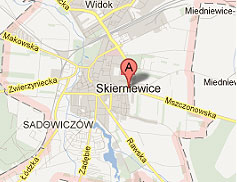PUBLIKACJE NAUKOWE
WYSZUKAJ PUBLIKACJE
Yielding and fruit quality of several cultivars and breeding clones of Amelanchier alnifolia grown in north-eastern Poland
Bieniek A., Markuszewski B., Kopytowski J., Pluta S., Markowski J.
2019
Zemdirbyste-Agriculture, 106(4): 281-286
chemical composition; mineral elements; Saskatoon berry; yielding
Zastosowanie markerów DNA w selekcji marchwi z cechą cytoplazmatycz-nej męskiej sterylności typu płatkowego./ The use of DNA markers in the selection of carrot lines with cytoplasmic male sterility trait
Szczechura W., Nowakowska M., Nowak K., Kamiński P., Nowak R., Kozik E.U.
2019
Zeszyty Naukowe Instytutu Ogrodnictwa, 27: 53-62
CMS; carrot; DNA markers; marker-assisted selection (MAS)
Znaczenie mikroorganizmów w rozwoju roślin. W: Ochrona bioróżnorodności gleby warunkiem zdrowia obecnych i przyszłych pokoleń
Smolińska U.
2019
Red. J. Podleśny, B. Kowalska, Wyd. Instytut Uprawy Nawożenia i Gleboznawstwa - Państwowy Instytut Badawczy, Puławy: 53-63. ISBN 978-83-7562-318-5
A careful choice of compatible pollinizers significantly improves the size of fruits in red raspberry (Rubus idaeus L.)
Żurawicz E., Studnicki M., Kubik J., Pruski K.
2018
Scientia Horticulturae, 235: 253-257
raspberry pollination, protected cultivation, raspberries off-season production, fruit quality, drupelet, metaxenia
Advocating a need for suitable breeding approaches to boost integrated pest management: a European perspective
Lamichhane J.R., Arseniuk E., Boonekamp P., Czembor J., Decroocq V., Enjalbert J., Finckh M.R., Korbin M., Koppel M., Kudsk P., Mesterhazy A., Sosnowska D., Zimnoch-Guzowska E., Messéan A.
2018
Pest Management Science, 74(6):1219-1227
DUS, crop diversification, decentralization, food security, minor crops, participatory plant breeding, seed legislation, sustainable agriculture greenery
Agrobacterium rosae sp. nov., isolated from galls on different agricultural crops
Kuzmanović N., Puławska J., Smalla K., Nesme X.
2018
Systematic and Applied Microbiology, 41(3): 191-197
crown gall, MLSA, ANI, in silico DDH, Whole-genome-based phylogeny, Sub-clade “rubi”
Alternaria brassicicola – Brassicaceae pathosystem: insights into the infection process and resistance mechanisms under optimized artificial bio-assay
Nowakowska M., Wrzesińska M., Kamiński P., Szczechura W., Lichocka M., Tartanus M., Kozik E.U., Nowicki M.
2018
European Journal of Plant Pathology
Alternaria resistance, bio-assays, dark spot, disease, resistance breeding, resistance mechanisms
Amitraz marker residues in honey from honeybee colonies treated with Apiwarol
Pohorecka K., Kiljanek T., Antczak M., Skubida P., Semkiw P., Posyniak A.
2018
Journal of Veterinary Research, 62(3): 297-301
honey bees, honey, Varroa destructor, amitraz fumigation, amitraz marker residues
A new approach to the method of drawing the Gaussen - Walter climate diagram
Treder W., Klamkowski K., Wójcik K.
2018
Meteorology Hydrology and Water Management - Research and Operational Applications, 6(2): 3-9
precipitation, evapotranspiration, temperature, water balance, drought
Apple pomace improves gut health in Fisher rats independent of seed content
Ravn-Haren G., Krath B. N., Markowski J., Poulsen M., Hansen M., Kołodziejczyk K., Kosmala M., Dragsted L.O.
2018
Food and Function, 9(5): 2931-2941
CVD, lipid metabolism, functional food, dietary fibre, apple polyphenols, SCFA
INSTYTUT OGRODNICTWA – PAŃSTWOWY INSTYTUT BADAWCZY
Siedziba Dyrekcji
ul. Konstytucji 3 Maja 1/3
96-100 Skierniewice
Tel.: 46 833 22 11 do 13 - Centrala
Fax: 46 833 31 86
e-mail: io@inhort.pl
ul. Pomologiczna 18
96-100 Skierniewice
Tel.: 46 833 20 21 - Centrala, 46 833 42 23 - Centrala
Fax: 46 833 32 28
ZAKŁAD PSZCZELNICTWA
W PUŁAWACH
ul. Kazimierska 2A
24-100 Puławy
Tel.: 81 886 42 08, 81 886 21 64
Fax: 81 886 42 09
e-mail:zaklad.pszczelnictwa@inhort.pl
© Copyright 2011 Instytut Ogrodnictwa, wszystkie prawa zastrzeżone / Kontakt: < Redaktor > < Webmaster >


